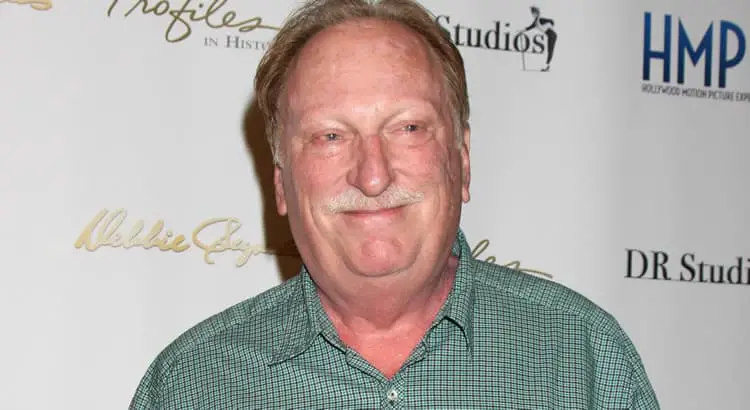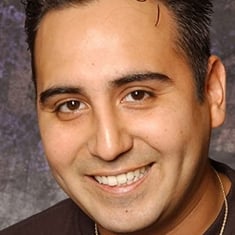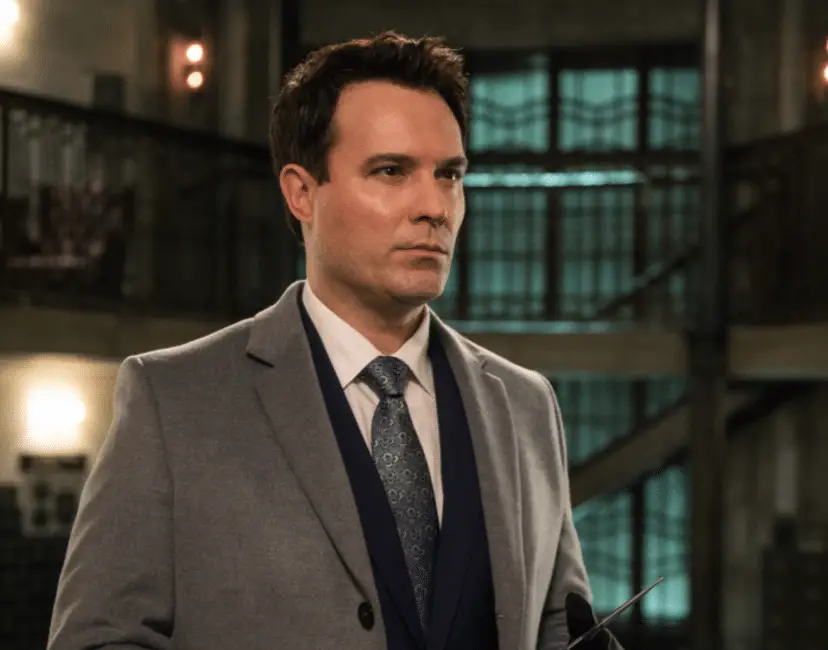Jeffrey Jones Biography | Jeffrey Jones
Jeffrey Jones (full name: Jeffrey Duncan Jones) is an American character actor who was born in September 1946. He is best known for his roles as Emperor Joseph II in Amadeus (1984), Edward R. Rooney in Ferris Bueller’s Day Off (1986), Charles Deetz in Beetlejuice (1988), and A. W. Merrick in Deadwood (2004–2006).
Jeffrey Jones Age
Jeffrey Duncan Jones is an American character actor best known for his roles as Emperor Joseph II in Amadeus, Edward R. Rooney in Ferris Bueller’s Day Off, Charles Deetz in Beetlejuice, and A. W. Merrick in both Deadwood and Deadwood: The Movie.
He was born on 28 September 1946 in Buffalo, New York, United States. He is 72 years old as of 2018.
Jeffrey Jones Family
Jones is the son of Ruth Schooley and Douglas Bennett Jones. His mother was an art historian, who urged him towards a career in acting while his father died during Jones’s childhood.
One interviewer found Jones to value anonymity and the enjoyment of everyday tasks, like home repairs and found him to be uninterested in status symbols and fan adulation.
In that 1989 interview, Jones pointed out that greater public recognition actually makes it more difficult to transition between roles and allow the character to come to the fore and the actor to recede from view.
Jeffrey Jones Early career
After graduating from the Putney School in 1964, Jones enrolled at Lawrence University as a pre-med student, where his performances in university productions brought him to the attention of Tyrone Guthrie, who recruited him for the Guthrie Theater in Minneapolis, Minnesota.
He then went to London in 1969 to study at the London Academy of Music and Dramatic Art, followed by a three-year stint with the Stratford Theatre in Stratford, Ontario.
His stage career included more than 125 productions, starting with the Guthrie Theater, then internationally in South America, Canada, and London, and ultimately in New York’s Broadway theatre, appearing with Sigourney Weaver, Christopher Walken, David Bowie, and Meryl Streep.
Productions included Cloud 9, A Flea in Her Ear, Romeo and Juliet and The Elephant Man. His transition from stage to film began in 1970.
Jeffrey Jones Wife
Jones was married to the late Lloy Coutts (1941–2008), a respected Canadian voice coach. The couple had met in Stratford, Ontario before they began their relationship and eventual marriage. From this marriage, Jones has a grown-up son by the name Julian Coutts.

Jeffrey Jones Son
Jeffrey’s son is Julian Coutts, an American actor who was born on October 23, 1971. He is known for his acting role in The Crucible (1996), Bridge to Terabithia (1985) and Geek Love (2011).
Jeffrey Jones Film and television career
Jones began acting in small parts in film and television in the 1970s. In his best-known roles as Emperor Joseph II in Amadeus, Charles Deetz in Beetlejuice, and Edward R. Rooney in Ferris Bueller’s Day Off, his dead-pan expression and distinctive face bring a comic flavor to his characters through their reactions to the situations in which they find themselves, more so than the wit in their scripted lines.
The New York Times’ biographic profile says of Jones, “Although he has tried to steer clear of playing only sinister roles, the actor’s imposing height, bugged-out eyes, easy sneer, and shock of reddish-blond hair give him vaguely devilish features that have prompted villain typecasting.
However, the actor is also widely respected and considered a boon wherever he appears.” The profile describes his portrayals variously as a “hissable, cartoonish high school principal” in Ferris Bueller’s Day Off, a “good-natured father” in Beetlejuice,
“an interplanetary freedom fighter” in Mom and Dad Save the World, a “demon stand-in” in Stay Tuned, “evil bespectacled twins” in Out on a Limb, plus other personae in a variety of other roles.
Jones’s work in the Lucille Lortel Theatre production of Cloud 9 was noticed by the casting team of Easy Money (1983), earning Jones a supporting role opposite Rodney Dangerfield. Read also David Eigenberg
Jeffrey Jones Amadeus
Cloud 9 further attracted the attention of director Miloš Forman, who cast Jones as Joseph II, Holy Roman Emperor in Amadeus (1984), an adaptation of the Peter Shaffer play of the same name.
Critic James Berardinelli noted that Jones portrayed the Emperor “as a superficial and self-absorbed ruler who can’t tell the difference between a great opera and a mediocre one”.
Vincent Canby of The New York Times praised the performance, citing the film’s most memorable line when the Emperor complains of Die Entführung Aus Dem Serail that “there are too many notes”. Jones’s work earned him a nomination for the Golden Globe Award for Best Supporting Actor – Motion Picture.
Jeffrey Jones Ferris Bueller’s Day Off
Jones’s performance as Edward R. Rooney in the film Ferris Bueller’s Day Off (1986) made him a cultural icon. Rooney, self-important and obsessed with catching the chronically truant Ferris Bueller, became a symbol of pomposity and authoritarian hatefulness.
The New York Times’ review characterized Jones’s performance as having “fine cartoon-like ferocity”, wherein his character “gets scratched, bitten, attacked by ferocious dogs and covered with mud while pursuing his weaker, but craftier prey, and emerges each time bruised but undaunted, thinking up some new (and futile) plan.”
The review likened Jones’s role as akin to that of Wile E. Coyote as a character who is fated to be unable to catch The Road Runner (Ferris Bueller). Jones expressed concern about being remembered more for this role than for Amadeus.
He further said, regarding the film’s premise, “What’s amazing about Ferris Bueller, is that we’re asked to, and do, sympathize with a kid whose only complaint in life is that his sister got a car for her birthday and he got a computer.”
Jeffrey Jones Beetlejuice and Tim Burton
In the horror comedy film Beetlejuice (1988), Jones and Catherine O’Hara portrayed a married couple (Charles and Delia Deetz) who unwittingly become co-owners of a haunted house.
To highlight this couple’s status as bores, director Tim Burton cast Dick Cavett and Robert Goulet to appear as their guests at a dinner party, at which the ghosts of the previous owners cause everyone to sing “Day-O (The Banana Boat Song)”.
Jones collaborated with Burton again on the films Ed Wood (1994), in which he portrays The Amazing Criswell, and Sleepy Hollow (1999).
Shortly prior to the release of Sleepy Hollow, Jones said of Burton “I’ve known Tim now for quite some time and really enjoy working with him. I like his sensibility, and he’s great fun.”
Jeffrey Jones Other films
Jones played Dr. Walter Jenning in the George Lucas film Howard the Duck (1986). He portrayed Inspector Lestrade in the Sherlock Holmes spoof film Without a Clue (1988).
In The Hunt for Red October (1990), he played ex-submarine commander Skip Tyler, who identifies the Red October’s propulsion system to Alec Baldwin’s Jack Ryan. He also appeared as real-life figure Thomas Putnam in The Crucible (1996). As lumber mogul Joe Potter, Jones was the primary antagonist of the Eddie Murphy comedy Dr. Dolittle 2 (2001).
Jeffrey Jones Television Roles
One of Jones’s earliest television roles was in an episode of the short-lived CBS series Sara (1976). He showcased his villain persona as the sinister Mister Acme (owner of Acme Toxic Waste) in the satirical comedy miniseries Fresno (1986), starring Carol Burnett, Charles Grodin, and Dabney Coleman.
For Disney, Jones hosted the 1987 D-TV Monster Hits musical special (as the Magic Mirror) and later co-starred with Tyra Banks, Kathy Najimy and Kevin Pollak in the video storyline portion of the Walt Disney World attraction ExtraTERRORestrial Alien Encounter, a staple of Tomorrowland from 1995 to 2003.
He has had guest roles on a number of television series, including Amazing Stories, Tales from the Crypt and Batman: The Animated Series. He was the star of another short-lived CBS program: sitcom The People Next Door (1989), portraying a cartoonist whose imagination could make things come to life.
Jones’s most prominent television role is that of newspaper publisher A. W. Merrick on the acclaimed HBO drama series Deadwood (2004–2006). Keith Uhlich of Slant Magazine referred to both Jones and the character of Merrick as “peversely appropriate additions” to the program, further citing Merrick as its “secular soul”.
Along with the ensemble cast, Jones was nominated for the Screen Actors Guild Award for Outstanding Performance by an Ensemble in a Drama Series.
Jeffrey Jones Later career
Subsequent to his legal troubles, Jones has become progressively less active as a performer. Following his appearance in the golf comedy Who’s Your Caddy? (2007), he was absent from film and television for several years.
He returned with an uncredited cameo as Collier’s editor Charles Colebaugh in the Emmy-nominated HBO original film Hemingway & Gellhorn (2012), followed by the supporting role of scientist Gladstone in the independent disaster film 10.0 Earthquake (2014).
Jones went on to play a fictional version of himself in the short film 7 Days (2016) and reprised the role of A. W. Merrick in Deadwood: The Movie.
In May 2015, Jones returned to the stage with the New American Theatre production of 63 Trillion, directed by Steve Zuckerman. The Los Angeles Times praised his portrayal of financial adviser Dick as having “malevolent gusto that Satan himself might envy.”
Beginning in March 2018, Jones portrayed ailing patriarch Bradley in a production of the A. R. Gurney play The Cocktail Hour, staged at the Annenberg Theater in the Palm Springs Art Museum.
Jeffrey Jones Personal life
Jones was born in Buffalo, New York, the son of Ruth (née Schooley) and Douglas Bennett Jones. His mother was an art historian, who urged him towards a career in acting. His father died when Jones was an infant.
One interviewer found Jones to value anonymity and the enjoyment of everyday tasks, like home repairs and found him to be uninterested in status symbols and fan adulation.
In that 1989 interview, Jones pointed out that greater public recognition actually makes it more difficult to transition between roles and allow the character to come to the fore and the actor to recede from view.
Jones has one son, actor Julian Coutts, whose mother was Lloy Coutts (1941–2008), a Canadian voice coach. She and Jones met in Stratford, Ontario.
Jeffrey Jones Legal troubles
In 2002, Jones was arrested for possession of child pornography and accused by a 17-year-old boy of solicitation to pose for nude photographs.
He pleaded no contest to a felony charge of soliciting a minor, as the accuser was 14 when the offense first occurred. At the same time, the misdemeanor charge of possession of child pornography was dropped.
His attorney emphasized that there was no allegation of improper physical contact. His punishment was five years’ probation, counseling, and the requirement to register as a sex offender.
Jones was arrested twice for failing to update his sex offender status, first in Florida in 2004, and then six years later in California. In 2006, Jones’s record became the subject of community complaint during the production of Who’s Your Caddy? in Aiken, South Carolina.
Upon learning of his involvement, locals insisted that the public should have been alerted, considering that families were being invited to visit the set. Surrounding the release of Deadwood: The Movie, Jones’s crime was noted in the press.
Jeffrey Jones Deadwood
In the film Deadwood, Jones plays the character of A.W.Merrick, a professional editor of the Deadwood Pioneer.
Deadwood is an American Western television series created, produced, and largely written by David Milch.
It aired on the premium cable network HBO from March 21, 2004, to August 27, 2006, spanning 36 episodes and three seasons.
Jeffrey Jones Artist
Jeffrey Catherine Jones (January 10, 1944 – May 19, 2011) was an American artist whose work is best known from the late 1960s through the 2000s. Jones provided more than 150 covers for many different types of books through 1976, as well as venturing into fine art during and after this time.
Fantasy artist Frank Frazetta called Jones “the greatest living painter”. Although Jones first achieved fame as simply Jeff Jones and lived for a time as a male, she later changed her name and was legally recognized as female.
Early life
Jeffrey Durwood Jones was born and raised in Atlanta, Georgia. As a child, her father was overseas in the military. She graduated from Georgia State College in 1967 with a degree in geology and was keenly interested in art and admired the work of Johannes Vermeer, Giovanni Battista Tiepolo, and Rembrandt.
Career
Jones moved to New York City to pursue an art career and quickly found work drawing comics pages for King Comics, Gold Key Comics, Creepy, Eerie, and Vampirella, as well as Wally Wood’s Witzend.
She painted covers for books, including the Ace paperback editions of Fritz Leiber’s Fafhrd and the Gray Mouser series and Andre Norton’s Postmarked the Stars, The Zero Stone, Uncharted Stars, and many others. For a period during the early 1970s, Jones also provided illustrations to Ted White’s Fantastic.
She drew many covers and short stories for a variety of comics publishers including DC Comics, Skywald Publications, and Warren but generally avoided the superhero genre.
The Studio
In 1972–1975 issues of National Lampoon, Jones had a full page strip entitled Idyl. From 1975 to 1979 workspace in Manhattan’s Chelsea district was shared with Bernie Wrightson, Barry Windsor-Smith, and Michael Kaluta collectively named The Studio. Dragon’s Dream produced a volume of their work in 1979.
Industry journalist Tom Spurgeon commented on the broader significance and influence of The Studio in his obituary of Jones at The Comics Reporter:
The legacy of that much talent doing what was collectively very good work at a point of almost monolithic and degrading corporate influence over the kind of art they wanted to do has provided The Studio with a legacy that can be embraced even by those that didn’t particularly care for the artists’ output.
The idea of a dedicated workplace that would allow for coercive influence one artist to another has been carried over into very nearly ever cartoonists’ collective space initiative since.
By the early 1980s, she had a recurring strip in Heavy Metal titled I’m Age. Cartoonists Walter Simonson and J. D. King said at the time that Jones had a growing interest in expressionism and did not pursue comic work as closely thereafter.
Jeffrey Jones Howard The Duck
Howard the Duck is a 1986 American comedy film directed by Willard Huyck and starring Lea Thompson, Jeffrey Jones, and Tim Robbins. It is based on the Marvel comic book of the same name. The film was produced by Gloria Katz and written by Huyck and Katz, with George Lucas as executive producer.
In the film, Jones portrays the character of Dr. Walter Jenning who gets possessed by a life form from a distant region of space.
Jeffrey Jones Amadeus
Miloš Forman cast Jones as Joseph II, Holy Roman Emperor in Amadeus (1984), an adaptation of the Peter Shaffer play of the same name. This was upon seeing his work in the Lucille Lortel Theatre production of Cloud 9.
Jones portrayed the Emperor as a superficial and self-absorbed ruler who couldn’t tell the difference between a great opera and a mediocre one. This was as observed by critic James Berardinelli.
Vincent Canby of The New York Times praised the performance, citing the film’s most memorable line when the Emperor complains of Die Entführung Aus Dem Serail that “there are too many notes”. Jones’ work earned him a nomination for the Golden Globe Award for Best Supporting Actor – Motion Picture.
Jeffrey Jones The Crucible
In the play, the Crucible, by Arthur Miller, Thomas Putnam (portrayed by Jeffrey Jones) is married to Ann Putnam, and together have a daughter, Ruth Putnam, who is afflicted with a grave illness, similar to that of Betty Parris.
They have lost seven children in childbirth and have pointed to witchcraft as the cause of their misfortune. He appears in Act 1 and is apparent during Act 3. Thomas twists Reverend Parris to get him on his side, urging him to see that it is witchcraft that is making Salem go mad.
He uses the trials to get the other villagers’ land, such as Giles Corey’s. Giles later takes Thomas to the court regarding the issue.






